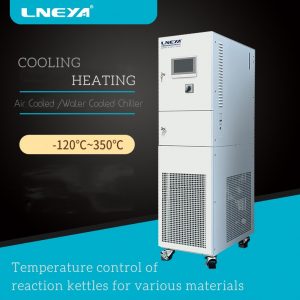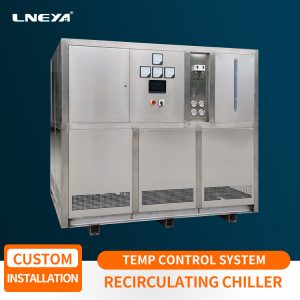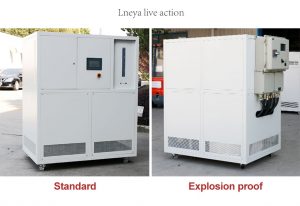What instruments can the LNEYA Laboratory Recirculating Chiller assist with?
Laboratory recirculating chillers have a wide range of applications in scientific research and industrial production, providing precise temperature control for various experiments and instruments.
The following are some common scenarios and supporting instruments for chillers in laboratories:
- Spectroscopy equipment: Spectrometers (such as UV visible spectrometers, infrared spectrometers, Raman spectrometers, fluorescence spectrometers, etc.) may require the light source, detector, and sample cell to operate at a constant low temperature to ensure measurement accuracy during optical measurements.
2. Mass spectrometer: Mass spectrometry analysis instruments, including liquid chromatography-mass spectrometry (LC-MS), gas chromatography-mass spectrometry (GC-MS), etc., require cooling in key areas such as ion sources and detectors to reduce noise, improve resolution and stability.
3. Electron microscopy (SEM, TEM): Some electron microscopes require cooling of the electron gun and sample chamber, especially in high-resolution imaging and diffraction modes, to reduce thermal noise and prevent sample blurring due to thermal drift.
4. Laser: Different types of lasers, especially solid-state and semiconductor lasers, require cooling of their laser media and heat dissipation components to prevent overheating, ensure stable laser output, and extend laser lifespan.
5. Vacuum system: The heat generated by vacuum equipment such as molecular pumps and diffusion pumps during operation needs to be cooled by a chiller.
6. Common laboratory instruments: rotary evaporator, distillation device, electrophoresis instrument, fermentation tank, condenser, reaction kettle, etc. The heat generated by these equipment during operation needs to be effectively cooled by a chiller to control reaction conditions and ensure the accuracy of experimental results.
7. Materials Science and Engineering: Semiconductor lasers, vacuum coating machines, nanomaterial synthesis equipment, etc. These high-tech equipment need to maintain a constant low temperature environment during the preparation process.
8. Data collection and analysis: Laboratory data collection systems, electronic devices, and other precision instruments that require temperature control to ensure stable performance.
In summary, laboratory recirculating chillers play an important role in various experiments involving temperature control and high-end precision instruments, ensuring precise control of the experimental process and long-term stable operation of the instruments.
Request a quote
7 * 24 무료 상담 및 종합 솔루션 제공
관련 권장 사항
-
저온 냉동고의 팽창 밸브를 디버깅하는 방법은 무엇인가요?
1164The effective operation of low temperature freezer is relevant to the needed refrigerating effect. It is crucial to correct expansion valve if better cooling effect is wanted. So, how to debug the expansion valve of low temperature freezer?During ...
세부 정보 보기 -
What should I do if there is noise from industrial cooling and heating chillers?
1157The industrial cooling and heating temperature control equipment adopts a PID algorithm temperature control system to accurately adjust the temperature based on the detected temperature and the set temperature value, improving the drawbacks of tr...
세부 정보 보기 -
글리콜 냉각기 설치 시 주의사항은 무엇인가요?
1062In the summer, the use of glycol chillersis relatively frequent. Therefore, when installing glycol chillers, they needto be installed on a smooth and tidy floor. Why choose a smooth ground wheninstalling? Users who have known the glycol chiller...
세부 정보 보기 -
With these points, the use efficiency of the ultra-low temperature chiller can be more efficient
1100The structure of the ultra-low temperature chiller is more complicated. Its main function is to provide cold air to the product, which is the refrigeration function. If you want to improve the efficiency of the freezer, you must pay attention to t...
세부 정보 보기
 LNEYA 산업용 냉각기 제조업체 공급 업체
LNEYA 산업용 냉각기 제조업체 공급 업체














상담 신청하기
24시간 이내에 답변 드리겠습니다.